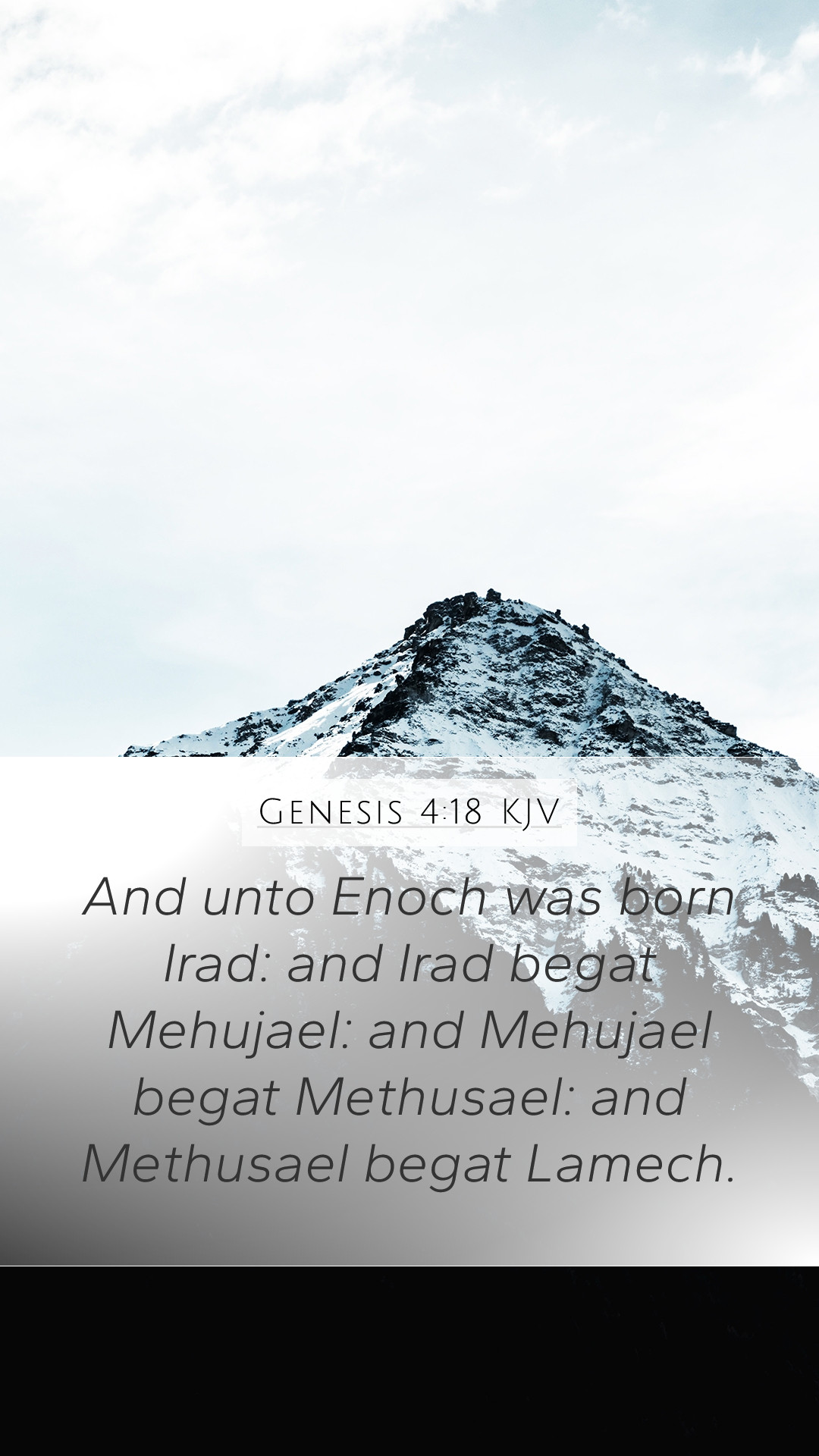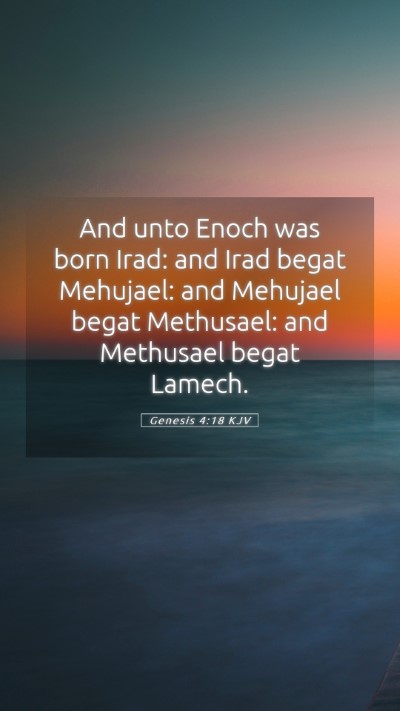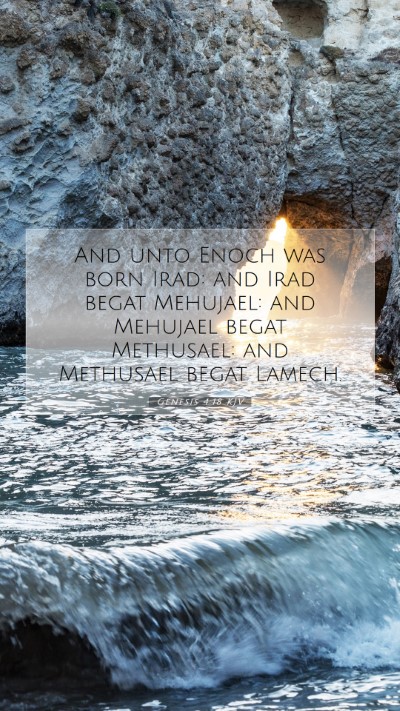Understanding Genesis 4:18 - A Comprehensive Bible Verse Commentary
Genesis 4:18 states:
"And Enoch was born to Irad; and Irad begot Mehujael: and Mehujael begot Methusael: and Methusael begot Lamech."
This verse recounts the genealogy from Enoch to Lamech, the fifth generation from Adam through Cain.
Meaning and Significance
The meaning of this Bible verse extends beyond mere lineage; it sets the stage for understanding the social and moral development of humanity post-Fall. The genealogy illustrates God's interaction with humanity, preserving His creation despite sin's corruption. Below are some insights drawn from esteemed commentaries.
Commentary Insights
-
Matthew Henry:
Henry emphasizes the importance of genealogies in the Bible, noting that they provide a historical framework and remind us of the continuity of God's plan. He suggests that the mention of each individual, starting from Enoch, signifies the unfolding of God's judgment and mercy among humanity.
-
Albert Barnes:
Barnes explains that the name “Enoch” signifies “dedication” which reflects the influence of these individuals on society. The mention of Irad, Mehujael, Methusael, and Lamech illustrates how sin and human innovations continued to proliferate after the Fall, leading to a culture increasingly characterized by violence and moral decay.
-
Adam Clarke:
Clarke focuses on the meanings of the names in the genealogy. He highlights Lamech’s significance, explaining that his lineage was marked by a departure from godliness. Each subsequent generation becomes increasingly distant from the original righteousness established in Adam and Eve, reflecting mankind's propensity to sin.
Contextual Analysis
Understanding Scripture requires examining the historical context of the verse. Genesis 4 documents early human history, characterized by the development of civilization and moral decline. The line of Cain shows humanity's attempts to forge identity apart from God.
Historical Context of Genesis 4:18
-
Pre-Flood Civilization:
Development began post-Eden, highlighting human creativity and innovation, such as agriculture and metalwork.
-
Moral Implications:
These generations illustrate a growing departure from God, emphasizing the need for redemption highlighted throughout Scripture.
Biblical Exegesis
Biblical exegesis of Genesis 4:18 involves a deeper inquiry into God's overarching narrative. The text is essential for:
- Understanding human lineage and its implications for God's covenant.
- Recognizing the development of culture and societal norms influenced by sin.
- Exploring the contrast between the line of Seth and the line of Cain.
Applications to Daily Life
Applying Bible verses to daily life is crucial for personal growth and spiritual maturity. Genesis 4:18 teaches us about:
-
The Importance of Legacy:
Our choices and lifestyles contribute to the legacy we leave behind. Enoch's lineage serves as a reflection of our influence on future generations.
-
Awareness of Sin:
This verse prompts self-reflection on how sin can manifest in our lives and societies, reminding us to strive for righteousness.
Cross References
- Genesis 4:16 - Cain's exile and its implications.
- Genesis 5:21-24 - The line of Seth and Enoch's godliness.
- Matthew 1:1-16 - The genealogy of Jesus Christ.
Conclusion
Genesis 4:18 provides rich insights into early human history, genealogy, and the moral landscape of humanity. As a part of biblical studies and understanding difficult Bible passages, this verse opens doors to further exploration of humanity's relationship with God.
By engaging in Bible study groups or utilizing online Bible study tools, one can delve deeper into the meanings and implications of Scripture for a more profound faith journey.


